This article was co-authored by The Verified Initiative of the United Nations and by wikiHow staff writer, Janice Tieperman. Verified is an initiative of the United Nations, to provide content that cuts through the noise to deliver life-saving information, fact-based advice and stories from the best of humanity. Led by the UN Department for Global Communications, the initiative also invites the public to help counter the spread of COVID-19 misinformation by sharing UN-verified, science-based content with their communities through articles, videos, and associated media. The initiative is a collaboration with Purpose, one of the world’s leading social mobilization organizations, and supported by the IKEA Foundation and Luminate.
There are 23 references cited in this article, which can be found at the bottom of the page.
This article has been viewed 37,659 times.
With all the information buzzing around about COVID-19, it’s very easy to feel overwhelmed and confused. Thankfully, there are a lot of easy ways to prevent and stop the spread of the virus, whether you’re at home or out and about. No matter where you live, there are plenty of things you can do to make your home and community safer and healthier during the COVID-19 pandemic.
Steps
Getting the COVID-19 Vaccine
-
1Get the COVID-19 vaccine. The vaccine is one of the most effective methods of preventing new infections. While you can still get COVID-19 if you’re vaccinated, it’s much less likely to happen—and your symptoms will be much less severe.[1] Talk to your doctor about getting a COVID-19 vaccine, which is currently available for adults and children ages 5 and up.
- In addition to keeping you from getting sick, being vaccinated makes you much less likely to spread COVID-19 to others.
- When you are fully vaccinated, you may be able to safely get back into activities that you had stopped doing because of the pandemic, such as attending live events, visiting gyms and recreation centers, and traveling. Keep in mind that returning to pre-pandemic life is dependent on the current public health guidelines and restrictions in your region.
- COVID-19 vaccines are safe for women in pregnancy.[2]
- There are several different kinds of COVID-19 vaccines available. As of July 2021, the Pfizer-BioNTech vaccine is the only vaccine currently approved for kids and teens under 18.[3]
- Other countries may have different guidance or mandates regarding vaccination. Contact your local health authority to see what is recommended and available to you.
- Most types of COVID-19 vaccine require you to get 2 doses, about 3 weeks apart. However, if you get the Johnson & Johnson vaccine, you’ll only need 1 dose.
-
2Find a local clinic or pharmacy that offers vaccines. In many countries, the COVID-19 vaccine is free for all residents. You may be able to get the vaccine at your local pharmacy, clinic, or public health department.
- In the U.S., you can find vaccination providers near you by visiting https://www.vaccines.gov/. You can also text your zip code to 438829 or call 1-800-232-0233 for more information.[4]
- Check your local government website for more information about finding vaccines in your country or region.
Advertisement -
3Watch out for possible side effects. The COVID-19 vaccine is safe for most people. However, it’s common to have some mild side effects or feel a little sick afterwards. This is nothing to worry about—it just means your immune system is learning how to fight the virus! Your healthcare provider may ask you to sit in the waiting room for 15 minutes after getting the shot to make sure you don’t have any serious reactions, but severe side effects or allergic reactions are rare.[5]
- Common side effects include a soreness, redness, and mild swelling around the site of the shot. Over the next 1-2 days, you might also experience some flu-like symptoms, such as tiredness, a headache, muscle aches, nausea, and a fever or chills.
- Call your doctor if you’re worried about any of your side effects, or if they get worse or don’t go away after 2-3 days.
-
4Wait until you’re fully vaccinated to go back to regular activities. For 2-dose COVID-19 vaccines, you’re considered fully vaccinated 2 weeks after you get the second dose. For single dose vaccines, such as the Johnson & Johnson vaccine, you’re fully protected 2 weeks after your initial dose. According to the CDC, once you’re fully vaccinated, you can go back to doing many of the things you did before the pandemic started—such as socializing with others without wearing a mask or social distancing.[6]
- Until you’re fully vaccinated, you’ll still need to take precautions, such as wearing a mask and staying at least 6 feet (1.8 m) away from others in public places. You’re not fully protected until 2 weeks after your final dose of the vaccine!
- Since there’s still a small chance you could catch COVID, not all experts agree that you should go back to normal activities after getting the vaccine. The World Health Organization still recommends taking extra precautions, such as wearing a mask, washing your hands frequently, and staying at least 3 feet (0.91 m) away from others in crowded public places.[7] Use your best judgment and follow local laws and guidelines.
-
5Ask your doctor if you’re not sure you can safely get the vaccine. All forms of the COVID-19 vaccine that are on the market right now have been thoroughly tested, and they are safe for most people. However, your doctor might recommend avoiding it if you have certain health conditions, or if you’ve ever had a severe allergic reaction to another vaccine.[8]
- Before you get the vaccine, your healthcare provider will ask you about your health history and any allergies you may have.
- Your doctor can help you decide whether the vaccine is safe for you based on your health history.
Practicing Healthy Habits
-
1Stay at home if you can. Although it’s a simple solution, avoiding contact with other people is an effective way to prevent the spread of COVID-19. Make an effort to stay at home when you can, and avoid making trips unless you absolutely have to.[9]
- You can always stay connected by calling or video chatting with friends and family.[10]
-
2Wear a mask or face covering before going out in public.[11] Slip on a medical mask or face covering before you go to the grocery store or any other public area. If you unknowingly have the virus, a mask can prevent you from spreading the illness to other people. Similarly, masks can protect you from picking up the virus from other people.[12]
- Some people with COVID-19 don’t show symptoms, so they can accidentally make others sick without knowing they have the virus. Masks can help prevent this from happening.
- Cloth masks are ineffective in preventing the spread of more infectious variants of COVID-19, like Delta and Omicron. Use a medical-grade mask to limit the spread and risk of infection from the current dominant variants of the coronavirus.[13] '
-
3Distance yourself physically from other people. Germs can travel long distances, which makes physical distancing especially important. Make an effort to stand a safe distance—6 feet (1.8 m) is recommended in the U.S.—away from others, whether you’re shopping or going for a walk around the neighborhood.[14] While this may seem a bit excessive, you can protect both yourself and others by keeping your distance.[15]
- In some places, like grocery stores, you won’t realistically be able to distance yourself from everyone around you. Just wear a mask and do the best that you can!
- Do your best to social distance wherever you go, whether you're indoors or outdoors.
-
4Cover your nose and mouth when you sneeze. Don’t sneeze or cough into the air—this allows the virus to spread very easily. Instead, cough or sneeze into your elbow, which helps keep the germs contained.[16] Additionally, you can sneeze or cough into a tissue and then throw that tissue out. After you’ve sneezed or coughed, always wash your hands thoroughly.[17]
-
5Wash your hands frequently throughout the day.[18] Lather your hands with soap and rinse them in warm water for 20 seconds. Get in the habit of washing your hands before eating food, after you’ve coughed or sneezed, after you’ve used the bathroom, or after you've touched any area used by the public, such as doorknobs. If you wash your hands often, you’re less likely to spread COVID-19 to other people.[19]
- Hand sanitizers are a great alternative if you’re in a rush or don’t have access to soap and water. Look for products with at least 60% ethanol/ethyl alcohol, which ensures that the germs will be destroyed.
-
6Sanitize high-touch surfaces each day. Think about the places in your home that are touched by a lot of people, like doorknobs, sink faucets, countertops, and tables. Each day, sanitize these surfaces with disinfectant, so you won’t pick up any unwanted germs.[20]
-
7Practice healthy habits to keep your immune system strong. In addition to preventing the spread of disease, you can develop healthy habits to keep your immune system working its best.[21] These include:[22]
- Getting at least 7-9 hours of sleep each night
- Eating nutritious vegetables and fruits each day
- Doing at least 150 minutes of moderate-intensity exercise each week
- Relaxing and practicing mindfulness to reduce stress.
- Regularly connecting with friends and family on the phone or with video calls.
Taking Precautions When You’re Sick
-
1Quarantine yourself for at least 14 days. Stay at home when you’re sick, so you don’t risk passing the virus on to anyone else. Keep track of how long you’ve quarantined—if you’ve been at home for 14 days and you haven’t had a fever for at least 1 day, then you can return to your usual routine.[23]
- Your fever has to have gone away on its own without the help of any medication.
- Ask friends or family members to pick up food for you so you don’t leave your home while you recuperate.[24] Or, order delivery.
-
2Separate yourself from the rest of your household if you’re sick. Designate a specific area of your home to be “yours” if you come down with COVID-19. If possible, designate a specific bathroom for yourself so you won’t be spreading germs to anyone around you. Encourage the other people in your household to keep their distance so you don’t risk spreading any germs.[25]
- As you recover, practice the same healthy habits you’d normally practice, like covering your coughs and sneezes and sanitizing your hands regularly.
-
3Wear a mask and wash your hands often. Even though you’re stuck at home, wear a mask when you’re near other household members so you don’t spread as many germs. As an extra precaution, don’t use or touch anything that other people in your household may use, like cups, silverware, or bedding. Whether you live alone or with other people, get in the habit of washing your hands often, using warm water and soap for 20 seconds. Additionally, cover all of your sneezes and coughs with a tissue, or direct them into your elbow if you're not wearing a mask.[26]
- Keep hand sanitizer close by so you can always keep your hands clean.
-
4Don’t snuggle with pets when you’re sick. As wonderful as it is to spend time with your pet, your furry friend may collect some of your germs on their fur, which can be spread to other members of your family. To be safe, ask a roommate or family member to care for the pet while you recover.[27]
Ditching Unsanitary Habits
-
1Keep your hands away from your face. Your eyes, nose, and mouth are major ways you can get infected with COVID-19, especially if you’re rubbing those areas with your hands. If you touch your face often, try out different habits that keep your hands distracted, like knitting, using a fidget spinner, or squeezing a stress ball. If your hair gets in your face a lot, tie it back so you’re less likely to touch it.[28]
- If you’re less likely to catch COVID-19, you’ll be less likely to spread it as well.
- Glasses that don’t fit properly may also cause you to touch your face.
- If you really have to itch your face, use a tissue to get the job done.
-
2Don't touch germ-infested surfaces. Whether you’re in public or at home, you’ll likely run into a lot of surfaces or spaces that pick up a lot of different germs. If you can, touch these surfaces with a tissue so you won’t pick up as many germs in the long run. If you do have to touch these surfaces, wash or sanitize your hands immediately after.[29]
-
3Avoid shaking hands or hugging anyone in greeting. Unfortunately, handshakes, hugs, and high-fives allow germs to spread pretty easily, and aren’t the greatest option when you’re meeting up with someone. Instead, think of some hands-free ways you can greet your friends and loved ones, like offering a wave.[30]
Debunking Popular Myths
-
1Accept that any person can come down with COVID-19. There are plenty of rumors going around about who can and can’t catch the virus. It’s important to remember that any person can come down with COVID-19, regardless of their age, gender identity, race, ethnicity, or health status.[31]
-
2Remind yourself that there are no approved cures for COVID-19. It’s important to keep a positive attitude during the outbreak, but you don’t want to put any faith in false facts. Don't believe any claims you see about products that can cure COVID-19, as none have been proven or approved.[32]
- If you test positive for COVID-19, always follow your doctor’s recommendations.
- While there’s no cure for COVID, there are a variety of treatments available that can help manage your symptoms and improve your chances of a quick recovery. These include certain antiviral medications, steroids, and medicines that help block severe inflammatory reactions in the lungs.[33] Only use medications that have been prescribed or approved by your doctor.
-
3Don’t worry about spreading COVID-19 through your shoes. There’s little evidence to prove that the virus can be tracked into your home through your shoes.[34] Instead, follow usual health practices to keep safe, like washing your hands, covering your nose and mouth when you sneeze, and wearing a mask when you go outside.[35]
- You may want to store your shoes away from common areas or outside of your home if you have young kids who will likely be crawling or touching the ground a lot. This way, they won’t touch any of the dirt that’s on your shoes.
-
4Trust that COVID-19 can’t be spread through common pests. House flies and mosquitoes may be pesky, uninvited guests around your home, but they won’t be bringing the COVID-19 virus with them when they enter. Still, make an effort to stay extra safe and healthy around your home by washing your hands often and sanitizing any surfaces in your home that people touch a lot, like countertops or tables.[36]
-
5Don’t expect extra sunlight to protect you from COVID-19. While sunlight comes with its share of health benefits, it won’t give you a get-out-of-jail-free card when it comes to the virus. Instead, practice healthy habits both at home and when you’re out and about, which can help reduce your risk of spreading COVID-19.[37]
- For instance, wash your hands frequently while you’re at home, and make an effort not to touch your face.
Expert Q&A
Did you know you can get expert answers for this article?
Unlock expert answers by supporting wikiHow
-
QuestionDo masks help reduce the spread of COVID-19?
 Ni-Cheng Liang, MDDr. Ni-Cheng Liang is a board certified Pulmonologist and the Director of Pulmonary Integrative Medicine at Coastal Pulmonary Associates affiliated with the Scripps Health Network in San Diego, California. She also serves as a Voluntary Assistant Professor of Medicine at the University of California San Diego School of Medicine while volunteering for the UCSD Medical Student-Run Free Clinic for uninsured patients. With over 15 years of experience, Dr. Liang specializes in pulmonary and respiratory medical concerns, mindfulness teaching, physician wellness, and integrative medicine. Dr. Liang received her Doctor of Medicine (MD) from the University of Maryland School of Medicine. Dr. Liang was voted as a San Diego Top Doctor in 2017 and 2019. She was also awarded the 2019 American Lung Association San Diego Lung Health Provider of the Year.
Ni-Cheng Liang, MDDr. Ni-Cheng Liang is a board certified Pulmonologist and the Director of Pulmonary Integrative Medicine at Coastal Pulmonary Associates affiliated with the Scripps Health Network in San Diego, California. She also serves as a Voluntary Assistant Professor of Medicine at the University of California San Diego School of Medicine while volunteering for the UCSD Medical Student-Run Free Clinic for uninsured patients. With over 15 years of experience, Dr. Liang specializes in pulmonary and respiratory medical concerns, mindfulness teaching, physician wellness, and integrative medicine. Dr. Liang received her Doctor of Medicine (MD) from the University of Maryland School of Medicine. Dr. Liang was voted as a San Diego Top Doctor in 2017 and 2019. She was also awarded the 2019 American Lung Association San Diego Lung Health Provider of the Year.
Board Certified Pulmonologist
-
QuestionHow can I disinfect paper? I need to send a thank you note and some paper currency to a neighbor for watching my pets recently. I want to ensure what I send will not be carrying any coronavirus.
 Luba Lee, FNP-BC, MSLuba Lee, FNP-BC is a Board-Certified Family Nurse Practitioner (FNP) and educator in Tennessee with over a decade of clinical experience. Luba has certifications in Pediatric Advanced Life Support (PALS), Emergency Medicine, Advanced Cardiac Life Support (ACLS), Team Building, and Critical Care Nursing. She received her Master of Science in Nursing (MSN) from the University of Tennessee in 2006.
Luba Lee, FNP-BC, MSLuba Lee, FNP-BC is a Board-Certified Family Nurse Practitioner (FNP) and educator in Tennessee with over a decade of clinical experience. Luba has certifications in Pediatric Advanced Life Support (PALS), Emergency Medicine, Advanced Cardiac Life Support (ACLS), Team Building, and Critical Care Nursing. She received her Master of Science in Nursing (MSN) from the University of Tennessee in 2006.
Board-Certified Family Nurse Practitioner First of all, treat all deliveries as if they might be contaminated. Secondly, take precautions before handling your envelopes or delivery boxes. According to research by NIH, coronavirus may remain on paper surfaces to up to 72 hours and therefore, you may want to let your packages to sit outside for that period of time before touching them. The same applies to paper currency. Either avoid using it or let it sit undisturbed for 72 hours before you handle it.
First of all, treat all deliveries as if they might be contaminated. Secondly, take precautions before handling your envelopes or delivery boxes. According to research by NIH, coronavirus may remain on paper surfaces to up to 72 hours and therefore, you may want to let your packages to sit outside for that period of time before touching them. The same applies to paper currency. Either avoid using it or let it sit undisturbed for 72 hours before you handle it. -
QuestionHow can essential workers stay safe and healthy?
 David Nazarian, MDDr. David Nazarian is a board certified Internal Medicine Physician and the Owner of My Concierge MD, a medical practice in Beverly Hills California, specializing in concierge medicine, executive health and integrative medicine. Dr. Nazarian specializes in comprehensive physical examinations, IV Vitamin therapies, hormone replacement therapy, weight loss, platelet rich plasma therapies. He has over 16 years of medical training and facilitation and is a Diplomate of the American Board of Internal Medicine. He completed his B.S. in Psychology and Biology from the University of California, Los Angeles, his M.D. from the Sackler School of Medicine, and a residency at Huntington Memorial Hospital, an affiliate of the University of Southern California.
David Nazarian, MDDr. David Nazarian is a board certified Internal Medicine Physician and the Owner of My Concierge MD, a medical practice in Beverly Hills California, specializing in concierge medicine, executive health and integrative medicine. Dr. Nazarian specializes in comprehensive physical examinations, IV Vitamin therapies, hormone replacement therapy, weight loss, platelet rich plasma therapies. He has over 16 years of medical training and facilitation and is a Diplomate of the American Board of Internal Medicine. He completed his B.S. in Psychology and Biology from the University of California, Los Angeles, his M.D. from the Sackler School of Medicine, and a residency at Huntington Memorial Hospital, an affiliate of the University of Southern California.
Diplomate, American Board of Internal Medicine
Warnings
- Drying your hands with a hand dryer won’t automatically “sanitize” or “disinfect” your hands. Instead, stay healthy by washing your hands thoroughly and using hand sanitizer.[39]⧼thumbs_response⧽
References
- ↑ https://www.cdc.gov/coronavirus/2019-ncov/vaccines/effectiveness.html
- ↑ https://www.cdc.gov/coronavirus/2019-ncov/vaccines/recommendations/pregnancy.html#:~:text=COVID%2D19%20vaccination%20is%20recommended,it's%20time%20to%20get%20one.
- ↑ https://www.cdc.gov/coronavirus/2019-ncov/vaccines/different-vaccines.html
- ↑ https://www.cdc.gov/coronavirus/2019-ncov/vaccines/How-Do-I-Get-a-COVID-19-Vaccine.html
- ↑ https://www.who.int/emergencies/diseases/novel-coronavirus-2019/covid-19-vaccines/advice
- ↑ https://www.cdc.gov/coronavirus/2019-ncov/vaccines/fully-vaccinated.html
- ↑ https://www.who.int/emergencies/diseases/novel-coronavirus-2019/covid-19-vaccines/advice
- ↑ https://www.who.int/news-room/q-a-detail/coronavirus-disease-(covid-19)-vaccines-safety
- ↑ https://www.fda.gov/consumers/consumer-updates/help-stop-spread-coronavirus-and-protect-your-family
- ↑ https://www.health.qld.gov.au/news-events/news/staying-connected-while-social-distancing-isolation-loneliness-technology-physical-connection-community-family-friends
- ↑ Ni-Cheng Liang, MD. Board Certified Pulmonologist. Expert Interview. 23 October 2020.
- ↑ https://www.fda.gov/consumers/consumer-updates/help-stop-spread-coronavirus-and-protect-your-family
- ↑ https://health.clevelandclinic.org/are-cloth-masks-enough-against-omicron/
- ↑ Ni-Cheng Liang, MD. Board Certified Pulmonologist. Expert Interview. 23 October 2020.
- ↑ https://www.fda.gov/consumers/consumer-updates/help-stop-spread-coronavirus-and-protect-your-family
- ↑ https://www.health.gov.au/resources/publications/coronavirus-covid-19-keep-that-cough-under-cover
- ↑ https://kidshealth.org/en/parents/coronavirus-stop-spread.html?WT.ac=p-ra
- ↑ Ni-Cheng Liang, MD. Board Certified Pulmonologist. Expert Interview. 23 October 2020.
- ↑ https://www.fda.gov/consumers/consumer-updates/help-stop-spread-coronavirus-and-protect-your-family
- ↑ https://www.health.harvard.edu/diseases-and-conditions/preventing-the-spread-of-the-coronavirus
- ↑ Ni-Cheng Liang, MD. Board Certified Pulmonologist. Expert Interview. 23 October 2020.
- ↑ Ni-Cheng Liang, MD. Board Certified Pulmonologist. Expert Interview. 23 October 2020.
- ↑ Ni-Cheng Liang, MD. Board Certified Pulmonologist. Expert Interview. 23 October 2020.
- ↑ https://www.health.gov.au/news/health-alerts/novel-coronavirus-2019-ncov-health-alert/how-to-protect-yourself-and-others-from-coronavirus-covid-19/physical-distancing-for-coronavirus-covid-19
- ↑ https://www.health.gov.au/news/health-alerts/novel-coronavirus-2019-ncov-health-alert/how-to-protect-yourself-and-others-from-coronavirus-covid-19/isolation-for-coronavirus-covid-19
- ↑ https://www.health.gov.au/news/health-alerts/novel-coronavirus-2019-ncov-health-alert/how-to-protect-yourself-and-others-from-coronavirus-covid-19/isolation-for-coronavirus-covid-19
- ↑ https://www.fda.gov/consumers/consumer-updates/helpful-questions-and-answers-about-coronavirus-covid-19-and-your-pets
- ↑ https://www.umms.org/coronavirus/what-to-know/prevention-safety/protect/not-touch-face
- ↑ https://www.cdc.gov/coronavirus/2019-ncov/prevent-getting-sick/prevention.html
- ↑ https://www.npr.org/sections/health-shots/2020/03/15/814540484/no-touch-greetings-take-off-people-are-getting-creative-about-saying-hi
- ↑ Ni-Cheng Liang, MD. Board Certified Pulmonologist. Expert Interview. 23 October 2020.
- ↑ https://www.who.int/emergencies/diseases/novel-coronavirus-2019/advice-for-public/myth-busters
- ↑ https://www.health.harvard.edu/diseases-and-conditions/treatments-for-covid-19
- ↑ https://www.who.int/emergencies/diseases/novel-coronavirus-2019/advice-for-public/myth-busters
- ↑ https://www.fda.gov/consumers/consumer-updates/help-stop-spread-coronavirus-and-protect-your-family
- ↑ https://www.who.int/emergencies/diseases/novel-coronavirus-2019/advice-for-public/myth-busters
- ↑ https://www.who.int/emergencies/diseases/novel-coronavirus-2019/advice-for-public/myth-busters
- ↑ https://www.npr.org/sections/health-shots/2020/04/12/832269202/no-you-dont-need-to-disinfect-your-groceries-but-here-s-to-shop-safely
- ↑ https://www.who.int/emergencies/diseases/novel-coronavirus-2019/advice-for-public/myth-busters
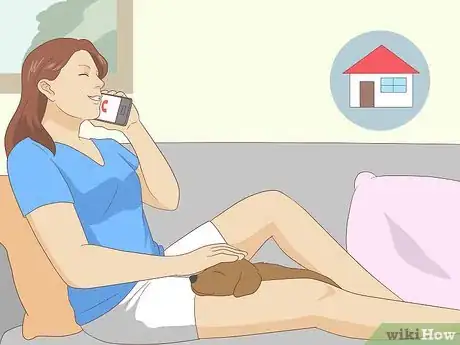




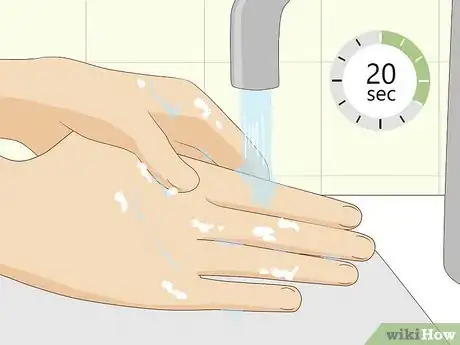

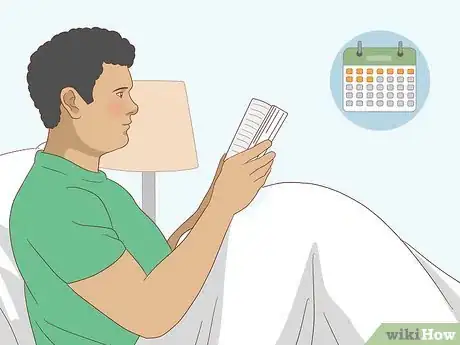





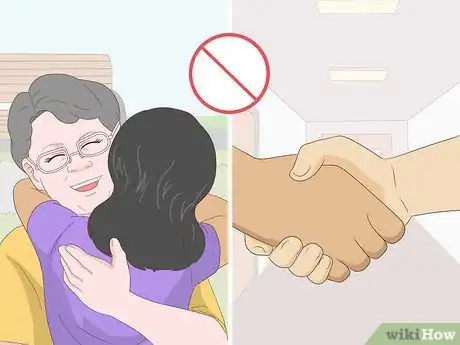


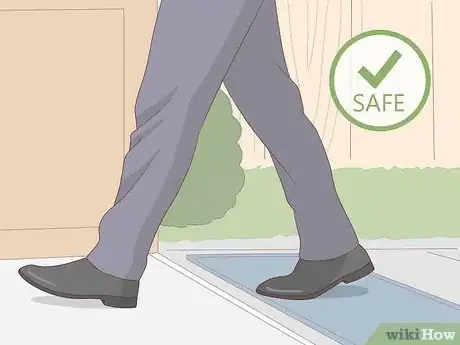


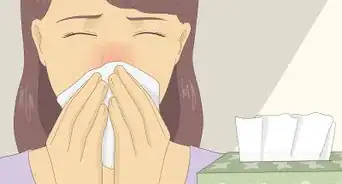
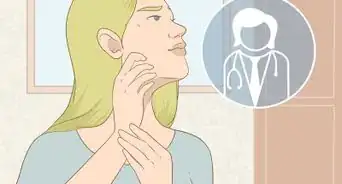
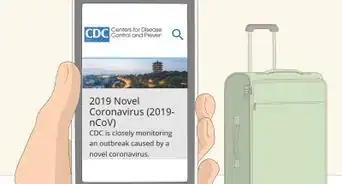
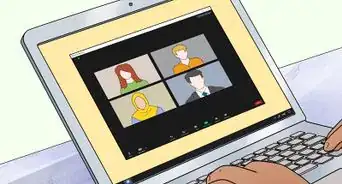
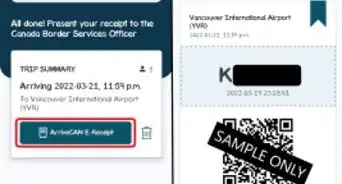
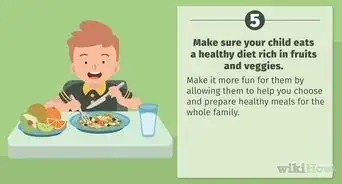
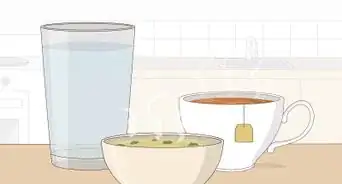
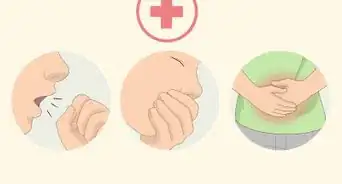
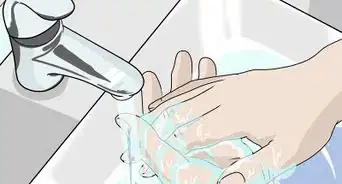
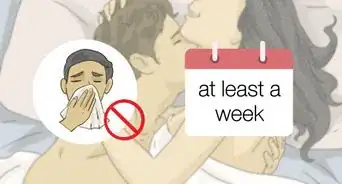
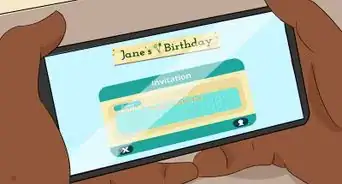








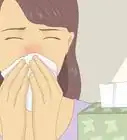

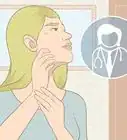
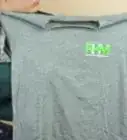



































Medical Disclaimer
The content of this article is not intended to be a substitute for professional medical advice, examination, diagnosis, or treatment. You should always contact your doctor or other qualified healthcare professional before starting, changing, or stopping any kind of health treatment.
Read More...